The assassination of Kandahar’s progressive mayor, Ghulam Haider Hamidi, this week marked the latest in a wave of high-profile killings in Afghanistan, reviving the debate over whether the Taliban is orchestrating a coordinated offensive ahead of America’s troop drawdown. Taliban leaders were quick to claim credit for Hamidi’s death, along with that of Afghan President Hamid Karzai’s half-brother Ahmed Wali Karzai on July 12. However, top American officials in the war-torn country, along with one strategic insider who worked closely with Hamidi, are hesitant to verify the Taliban’s claims. “Whether Hamidi’s killing was really orchestrated by the Taliban is difficult […]
U.S. Foreign Policy Archive
Free Newsletter
The United Nation’s declaration of a famine in two regions of southern Somalia has been accompanied by horrific reports of starvation and news of more than 100,000 internally displaced people flooding into Mogadishu. Already bearing the burden of a 20-year-old civil war, the Somali capital now appears to be emerging as the epicenter of the famine’s misery as well. However, the exodus of starving Somalis may also have volatile regional ramifications, specifically in neighboring Ethiopia and Kenya, says Elizabeth G. Ferris, codirector of the Brookings-LSE Project on Internal Displacement in Washington. Ferris reminded Trend Lines yesterday that Kenya is already […]
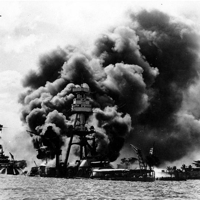
As the father of 2-year-old twin daughters, I often find myself thinking about how international politics and foreign policy will play out across their lives. Of course, parents aren’t the only “institutions” that wonder about the possibility of forecasting and shaping the future. Governments, international organizations and companies make huge investments of both lives and money based on expectations with time horizons of 10, 20 and even 50 years. Nimitz-class aircraft carriers have been in service for more than 30 years and may serve for another 40. The United States is currently wrestling, in a very public manner, with the […]
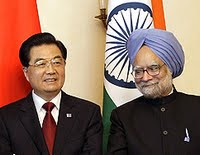
There is no faster route to second-tier great power status than for an actual or aspiring superpower to fight a crippling conflict with another country from those same ranks. Moreover, if history is any guide, the glass ceiling that results is a permanent one: This was the fate of imperial Britain, imperial Japan and Germany — both imperial and Nazi — in the first half of the 20th century, and the same was true for Soviet Russia in the second half of the century, despite Moscow’s conflict with the West being a cold one. The lesson is an important one […]
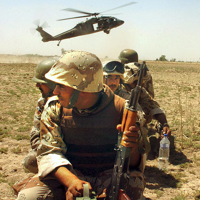
Most experts believe that one of the most catastrophic mistakes made during the U.S. occupation of Iraq was the decision to disband the Iraqi armed forces in May 2003. The question is not merely of interest to historians and those writing “after-action” reports on the Iraq invasion. After all, other Iraq-style regimes — most notably in Syria, Libya and North Korea — are likely to fall in the near future. In all three states, the armed forces are part and parcel of the longstanding political order, and there will be those arguing for their complete dissolution in order to sweep […]

Americans today are enjoying the most peaceful period, on a per capita basis, in human history, with virtually all of the remaining mass violence in the system occurring not between organized militaries, but rather sub- and transnationally — that is, within nation-states and across their borders. The frequency, length and lethality of conflicts are all down from Cold War highs, despite the growth in both numbers of countries and world population. Nonetheless, most Americans continue to have extremely misdirected fears and impressions regarding the global security landscape. We see a world of wars and believe them all to be of […]

After seven years of debate and impasse, the Nuclear Suppliers Group, a 46-nation group of nuclear technology suppliers, agreed at a meeting last month in the Netherlands to revise the guidelines for trade in enrichment and reprocessing (ENR) technology. The move was immediately criticized in India by the media and opposition parties as a reversal of the NSG’s 2008 waiver allowing the transfer to India of sensitive ENR technology, which can be used for the production of both nuclear energy and nuclear weapons. The NSG’s original guidelines dated from 1978, three years after the group was formed in response to […]
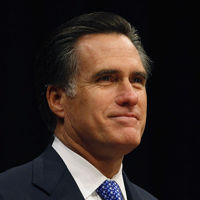
The Republican Party’s increasing divisions on foreign policy have now moved beyond Tea Party-inspired financial grumbling to find their way into the race for the GOP presidential nomination. Could the party’s 2012 nomination turn on foreign policy? If so, it would echo the 2008 Democratic primary campaign, in which foreign policy played an unusually strong role: Barack Obama is president of the United States today in large part because he opposed the Iraq War in 2003, compared to Hillary Clinton, who had been in favor of the war. However, supporters of a noninterventionist turn in the GOP are likely to […]
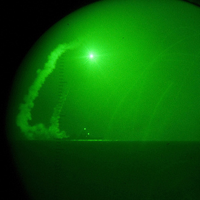
A stalemate has set in between President Barack Obama and the U.S. Congress over the president’s authority to initiate and continue combat operations against Libya. This should surprise no one. The limits on the president’s constitutional authority to wage war are as uncertain today as they were when the Constitution was ratified. Complicating this uncertainty is that pesky law passed by Congress in 1973 over President Richard Nixon’s veto: the War Powers Resolution (WPR). Enacted in response to the widespread belief that it had become far too easy for a president to commit the nation to war, the WPR sought […]
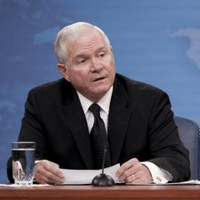
Robert Gates could boast a remarkable public service career when he retired from the Pentagon on July 1. In addition to his other contributions, Gates was the only defense secretary to have overseen two different wars serving under two presidents of two different parties. His solid if low-key Republican credentials and reputation as a prudent hawk helped depoliticize national security issues during and well beyond the presidential transition from George W. Bush to Barack Obama. These qualities also helped Obama avoid the kinds of problems experienced by President Bill Clinton, the previous Democratic president whose clashes with senior military officers […]

For the past 20 years, American and Russian policymakers have been searching for “the big thing” that would serve as the foundation for an effective and durable partnership between the two countries. In the months following Sept. 11, for instance, there was a sense that the “war on terror” might recreate a “grand alliance” between Moscow and Washington akin to the World War II partnership against the Nazis. But grandiose schemes for a revamped European security architecture and even a U.S.-Russia strategic alliance have foundered because realities could never match the rhetoric. Learning from these missteps, the Obama and Medvedev […]
